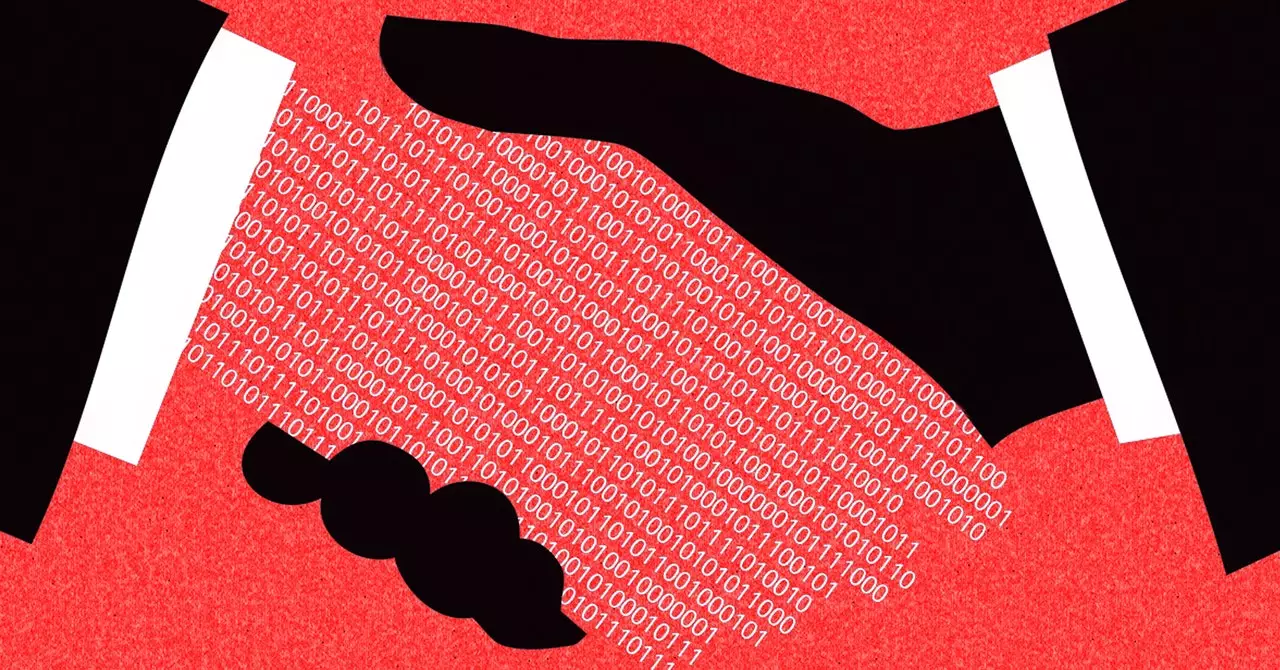In the rapidly evolving landscape of artificial intelligence (AI), the integration of data from digital platforms like YouTube has become a contentious issue. Traditionally, AI firms have utilized an ocean of user-generated content from YouTube without securing proper permissions. However, a nascent startup called Calliope Networks aims to create a paradigm shift with its innovative “License to Scrape,” which positions itself directly at the intersection of digital content creators and AI technology companies. This initiative not only raises questions about intellectual property and its monetary value but also hints at a cooperative future for creators and AI developers.
While the demand for YouTube content by AI companies is palpable—evident from their unauthorized data collection practices—this trend has raised red flags among content creators and rights holders alike. The existing landscape lacks a well-defined framework for licensing creators’ work, resulting in a mismatch between AI’s insatiable appetite for data and creators’ rights to their intellectual property. In this context, Calliope Networks is positioned as a mediator, bridging the gap between AI companies eager for content and creators looking to monetize their work.
Led by CEO Dave Davis, who has a rich background in traditional media licensing, Calliope Networks endeavors to breathe life into a sustainable framework that legitimizes the use of YouTube content. Davis recognizes the need for accountability and structure in this space. “There’s an obvious demand from AI companies to scrape YouTube content. We see that by their actions,” he states, indicating that this bold venture is less revolutionary and more a response to evident market needs.
Calliope’s model is unique; it proposes that YouTube content creators enter contracts allowing the startup to sublicense their videos for AI training purposes. This approach is particularly clever as it circumvents the need for direct dealings with YouTube, allowing creators to negotiate collectively. The venture aims to pool together a significant library of content—reportedly between 25,000 and 50,000 hours—to establish a solid foundation attractive enough for AI firms. In essence, this collaborative model fosters an environment where collective bargaining could lead to greater financial benefits for individual content creators.
Davis has borrowed concepts from established practices in the music industry, specifically looking at models used by Broadcast Music Inc. (BMI) and the American Society of Composers, Authors, and Publishers (ASCAP) that utilize blanket licenses. Drawing parallels to these frameworks, the “License to Scrape” could well become a standard for negotiating creator rights in the burgeoning AI domain.
At present, Calliope is in the early stages of recruiting YouTube creators to participate in this initiative. The numbers are critical—achieving a minimum threshold of content is essential for enticing larger AI firms into partnerships. However, this process is neither straightforward nor guaranteed. Without marquee partnerships, there is skepticism surrounding the initiative’s viability. Yet, Davis remains optimistic, citing encouraging responses from influencers and content agencies like Viral Nation, which has close to 900 YouTubers in its network.
Bianca Serafini, the head of content licensing at Viral Nation, notes that initial feedback from creators has been positive, suggesting a willingness among YouTubers to explore this licensing route. With the potential for significant audience reach and data monetization, creators may find that cooperating through Calliope Networks offers them an avenue to capitalize on their content while ensuring they retain some level of control over its usage.
As the junction of AI innovation and content creation grows more intricate, platforms like Calliope Networks represent the future of content licensing. By shifting the paradigm from unchecked scraping to a formal system of negotiation and contract-based usage, there lies potential not only for revenue generation for creators but also for ethical consumption of digital content by AI firms. This pioneering effort might herald a new era where content creators and AI companies can flourish symbiotically, ensuring that the rights of creators are recognized and rewarded in this new digital frontier.

